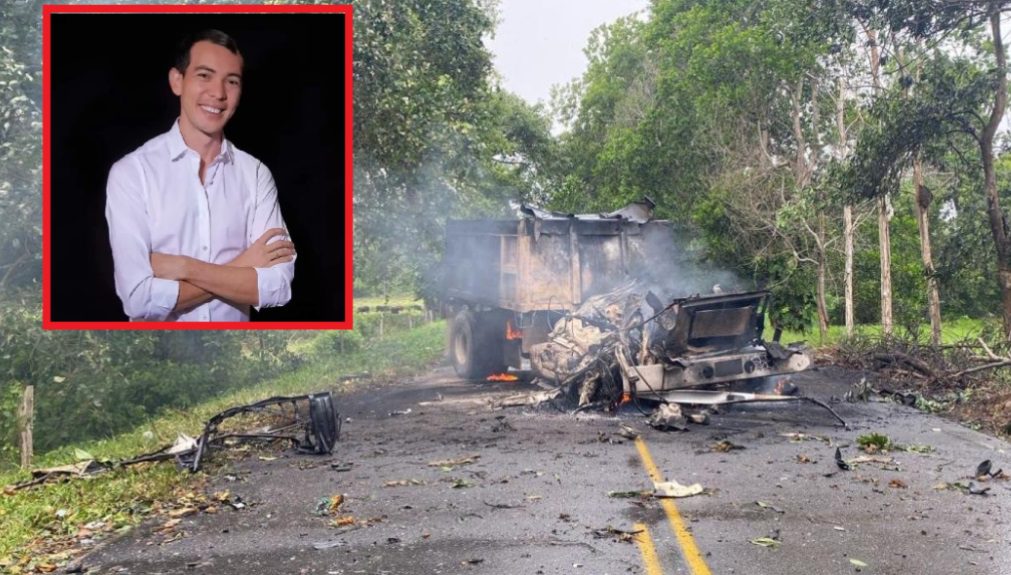BTN News: A deadly attack in the Arauca department of Colombia has reignited concerns over escalating guerrilla violence and perceived government neglect. On the heels of an explosive incident at a military base in Puerto Jordán, three soldiers were killed, and over 30 were wounded in an ambush reportedly perpetrated by the National Liberation Army (ELN). Arauca’s local leaders, including Mayor Juan Quenza, have voiced their frustrations with the national government’s lack of response, highlighting the community’s ongoing struggle with armed conflict from both ELN and Farc dissident groups. With peace talks now suspended, the region fears further violence and instability.
Arauca on Edge After Deadly Guerrilla Attacks
Arauca, a department long troubled by guerrilla warfare, has found itself once again at the center of violent clashes between armed groups. According to Arauca’s Mayor Juan Quenza, while the capital city remains relatively calm, the rural areas are rife with fear and uncertainty. Recent attacks on military personnel have only heightened this sense of insecurity.
The most devastating attack occurred at a military base in Puerto Jordán, where an explosive-laden truck claimed the lives of three soldiers and left over 30 wounded. The ELN, Colombia’s most formidable guerrilla group, is widely believed to be behind the attack. “We haven’t seen violence like this in years,” Quenza lamented, adding that the government’s absence from the region only worsens the situation.
Peace Talks Collapse Amid Growing Tension
The suspension of peace negotiations between the Colombian government and the ELN has been a major blow to Arauca. Mayor Quenza emphasized that despite the dialogues, Arauca had seen little tangible improvement. “Even while peace talks were ongoing, killings and extortions never stopped in Arauca,” Quenza stated, underscoring the need for regionalized peace efforts. For Arauca, the suspension means not only the breakdown of talks but also an increase in violence, including targeted attacks on the military and police.
Quenza voiced concerns that the conflict would soon spill over into larger cities. “If this continues unchecked, we may see attacks in places like Bogotá,” he warned, pointing to the ELN’s desire to draw attention to their cause.
Government Response: Too Little, Too Late?
The national government’s response—or lack thereof—has been a focal point of criticism. Mayor Quenza highlighted that President Gustavo Petro and key defense officials have yet to visit Arauca in the wake of the attacks, fueling feelings of abandonment. “If this had happened in another part of the country, I’m certain the president would have been here with solutions and investment,” Quenza remarked.
A brief security council meeting led by the commander of the armed forces did little to address key concerns. Quenza noted the absence of concrete measures such as bolstering military equipment or improving security infrastructure. For instance, only 17 out of 90 security cameras in Arauca are operational, a problem the local government has been left to address with little national support.
The Dire Reality: A Call for Dialogue and Action
As violence escalates, the local administration and civilians in Arauca are calling for immediate national attention. Mayor Quenza has been vocal in advocating for a peace dialogue rooted in the regions most affected by guerrilla violence. “We’ve had over 800 violent deaths in the last two years,” he said, noting that many resulted from clashes between the ELN and Farc dissidents. For Quenza, the solution lies in engaging directly with the ELN’s military wing, Domingo Laín Front, which controls much of Arauca.
Despite ongoing pleas, Quenza revealed that attempts to meet with government officials, including the national peace commissioner, have been unsuccessful. Meanwhile, local authorities are taking matters into their own hands, allocating funds for motorcycles and armored vehicles for the military and seeking to upgrade the region’s failing security systems.
Suspended Peace Talks and the Future of Arauca
The breakdown of peace negotiations is seen as a turning point in Arauca’s recent history. While some had hoped that talks with the ELN would lead to a decrease in violence, the reality has been the opposite. According to Quenza, the guerrilla groups have only grown stronger, with more resources and influence in the region. “We must negotiate with the strongest,” he emphasized, pushing for a redefined peace process that engages directly with those who hold power in Arauca.
Local residents, meanwhile, are left to grapple with the constant threat of violence, restricted mobility, and the fear that they may once again live under the terror that defined the early 2000s. “It feels like we’re back in the dark days of 2001 to 2003,” Quenza said, referencing a period when the conflict in Arauca displaced thousands of families.
What Does Arauca Need Now? A Plea for National Support
As the situation in Arauca deteriorates, the call for national intervention grows louder. “We are essentially held hostage by these groups,” Quenza explained, pointing to the guerrillas’ control over roads and daily life in rural areas. The mayor’s message to President Petro is clear: Arauca cannot be left behind. Without immediate action, he fears the violence will only worsen, plunging the region into deeper chaos.
Quenza’s demands are simple: bring national security resources, initiate peace talks that reflect local realities, and provide the necessary infrastructure to keep Arauca safe. Without this, Arauca will remain on the frontlines of Colombia’s unresolved guerrilla conflict.


